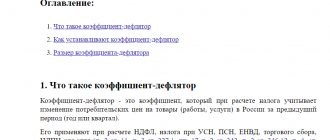Leased property tax in 2021 must be paid based on current legislation. Moreover, regardless of the type of product purchased - if it falls under a certain category.
Dear readers! The article talks about typical ways to resolve legal issues, but each case is individual. If you want to find out how to solve your particular problem , contact a consultant:
+7 (499) 938-81-90 (Moscow)
+7 (812) 467-32-77 (Saint Petersburg)
8 (800) 301-79-36 (Regions)
APPLICATIONS AND CALLS ARE ACCEPTED 24/7 and 7 days a week.
It's fast and FREE !
It is important to familiarize yourself with the terms of payment in advance, as well as many other nuances. This will avoid complications.
What is international leasing
Leasing refers to financial lease. In this process, the lessor (lessor) acquires property with the aim of transferring it to the lessee (lessee) for temporary use. What exactly should be purchased and from which supplier is determined by the tenant. The lessor is relieved of responsibility for choosing the rental item.
Leasing can be domestic or international. In the first case, the lessor and lessee are Russian companies. If at least one of the parties is not a resident of Russia, then we are talking about international leasing.
Legal regulation
Legal relations between the parties involved in leasing are regulated by the following legislative acts:
- Paragraph 6 of Chapter 34 of Part 2 of the Civil Code of the Russian Federation.
- Federal Law No. 164-FZ “On financial rent (leasing)” dated October 29, 1998.
- The UNIDROIT Convention on International Financial Leasing (except for the provisions of paragraph 3 of Article 8, which, in accordance with Article 20 of the Convention, were replaced by Russia with the norms of internal law - the Civil Code of the Russian Federation).
Transaction requirements
The legislative acts listed above impose the following requirements for an international leasing transaction:
- the tenant of the leased property and the lessor are located in different countries;
- the lessee is responsible for choosing the property and supplier;
- the supplier is aware that the property is acquired solely for the purpose of leasing;
- the amount of lease payments is determined taking into account the depreciation of all property or a significant part of it;
- all three participants in the transaction (lessor, lessee and supplier) must be residents of countries participating in the UNIDROIT Convention;
- the provisions of the Convention apply also in cases where the contractual relations between the parties to a leasing or supply agreement are subject to the rules of domestic law;
- If the lessor, lessee and supplier agree, the provisions of the Convention may not apply.
Sphere today
In addition to the strict policy of the tax authorities, the main restriction that currently applies to leaseback transactions in Russia concerns agreements between lessors and private individuals. According to ARVL specialists, the exclusion of “private traders” from the process will lead to the emergence of “gray” and “black” zones of this market, and in no way to an improvement in the situation.
Leaseback as a financial mechanism was envisaged more than twenty years ago and its effectiveness has been proven more than once. In addition, domestic law does not know of similar precedents for limiting the subject composition of a legalized contractual form, especially since this kind of restriction can be overcome through other civil law mechanisms that are similar in their legal effect.
VAT nuances
When talking about international leasing, it most often means that the lessee is a Russian company, the lessor is a foreign one, and the equipment is imported into the Russian Federation from abroad. Due to the participation of a foreign counterparty and the import of property, the procedure for assessing VAT on international leasing transactions differs from the procedure for assessing similar domestic transactions.
Based on subparagraph 4 of paragraph 1 of Article 146 of the Tax Code of the Russian Federation, operations for the import of goods into the territory of Russia are subject to VAT. Moreover, in these transactions, not only organizations that are VAT payers are subject to this tax, but also all others. For example, companies applying special tax regimes, as well as those exempt from VAT in accordance with Articles 145 and 145.1 of the Tax Code. This procedure follows from the fact that when importing property into Russia, VAT is levied not as an indirect tax, but as a customs payment. Consequently, its application is regulated not only by Chapter 21 of the Tax Code, but also by Federal Law No. 311-FZ “On Customs Regulation in the Russian Federation” dated November 27, 2010.
Import of property from the countries of the Customs Union
If property is imported from a member country of the Eurasian Economic Union, then the VAT base should be determined in accordance with paragraph 15 of the Protocol on the procedure for collecting indirect taxes, which is an annex to the Treaty on the EAEU dated May 29, 2014.
Based on Article 79 of the Customs Code of the Customs Union (CU CU), the payer of “import” VAT is the declarant - the person declaring the goods or the one on whose behalf they are declared (Article 4 of the CU CC). Imported goods can be declared either by the declarant himself or by his customs representative - an organization that is a resident of a CU member country.
Based on paragraph 1 of Article 60 of Law No. 311-FZ, a company included in the relevant register can be a customs representative in Russia. Paragraph 6 of the same article establishes that the customs representative is jointly and severally liable with the declarant for payment of tax when importing goods.
Customs duties must be paid in the state whose customs authority releases the goods (clause 1 of Article 84 of the Customs Code of the Customs Union). Since during international leasing the property is released by Russian customs authorities, import VAT must be paid in Russia.
The amount of taxes payable when importing property into Russia from a country that is a member of the Customs Union depends on the terms of the leasing agreement. In particular, it depends on whether it provides for the redemption of imported property. If this condition is absent, then it becomes possible to apply the temporary import regime and, on the basis of subparagraph 5 of paragraph 1 of Article 151 of the Tax Code of the Russian Federation, completely or partially avoid paying “import” VAT. Otherwise, the tax will have to be paid in full.
Return of leased property
If the contract of the type in question is terminated early, then in this case the full duty on the acquired property must be paid by the party that is the actual owner.
Moreover, they can remain both the provider of the service and its recipient. There are certain nuances.
If a return procedure is carried out, the remaining price must be reflected on account No. 03. If the equipment or something else will be used further, then it will be included in the fixed assets. As a result, the fee will have to be paid on a general basis.
An example of calculating tax on a real estate property when returning a leased asset
In January 2021, Alpha LLC acquired the property for 5,900,000 and leased it under a special agreement. VAT on this purchase amounted to 900,000. When calculating the tax, the cadastral price is not taken into account. The building itself was handed over for use in February.
The duration of the agreement is 72 months. Accounting is kept on the balance sheet of the lessor himself. Calculations are carried out using a linear method.
The useful life is 180 months or 15 years. At the initiative of the lessor, the agreement was terminated in March of the same period. Became used in the lessor's household.
Residual size (rub.):
- 01 – 0;
- 02 – 5 000 000;
- 03 – 4 900 000;
- 04 – 4 900 000.
Average annual size (rub.):
(0 + 5 000 000 + 4 900 000 + 4 900 000) / 4 = 3 700 000
Advance payment:
3 700 000 ×2.2% / 4 = 20 510
Tax deduction
The lessee, who is a VAT payer, has the right to deduct the amount of VAT paid on the import of leased property. This is true in the case when the received property is used to carry out activities subject to VAT, as well as when other conditions for applying the deduction established in Chapter 21 of the Tax Code of the Russian Federation are met.
In accordance with the explanations of the Ministry of Finance given in letters No. 03-07-08/297 dated 10.26.11 and No. 03-07-08/123 dated 04.25.11, “import” tax can be deducted if it was paid at the expense of the taxpayer himself or an intermediary. If the tax was paid from the funds of another organization, then the lessee from Russia will not be able to deduct it (letter of the Ministry of Finance of Russia dated June 30, 2010 No. 03-07-08/193).
As you know, the amount of VAT can be claimed for deduction only after the goods on which the tax was paid have been registered. At the same time, the concept of “accept for accounting” is not specifically defined in Russian tax legislation, and tax authorities often interpret it not in favor of taxpayers. Thus, the Federal Tax Service believes that the lessee does not have the right to submit “import” VAT for deduction until the ownership of the leased asset is transferred to it (letter of the Federal Tax Service No. 03-2-06/1/2424/22 dated 12/01/04 ). Therefore, if equipment is imported without the right of redemption, sometimes tax authorities deny the lessee a deduction. Officials justify their decision by the fact that the Russian taxpayer is not the owner of the property, but only rents it and records it in off-balance sheet account 001 “Leased fixed assets.”
But the Ministry of Finance has a different opinion (letters No. 03-07-08/337 dated 11.29.10, No. 03-07-08/242 dated 10.21.08). The department believes that the company has the right to claim VAT on leased property for deduction after it has been accepted for accounting. It does not matter in which account it is recorded - on-balance sheet or off-balance sheet. Some courts hold a similar opinion. For example, it is supported in the resolution of the Supreme Arbitration Court of the North Caucasus District No. A32-1783/2012 dated July 24, 2013. The court points out that a necessary condition for accepting VAT for deduction is the reflection of property in accounting, and not the transfer of ownership of it to the taxpayer. Therefore, regardless of which accounts the received property is accounted for, the company has the right to claim a deduction for the tax paid when importing it into Russia. Based on this, many experts believe that the tax authorities’ ban on deducting VAT in the situation discussed above is contrary to the Tax Code.
Thus, based on legal norms and taking into account the position of the Ministry of Finance, the lessee can claim a deduction for the VAT that was paid on the leased property. This can be done at the time it is received and reflected in accounting on off-balance sheet account 001. The basis for the deduction are documents on receipt of property and payment of VAT.
About the association
ARVL is a public organization whose goals are:
- • promote the development of leaseback in the Russian Federation;
- • protect the rights and interests of market participants;
- • set high industry standards and interact with all parties of economic processes, including government bodies, with maximum efficiency;
- • develop innovative approaches and contribute to the digitalization of the industry.
The Association carries out various activities to improve the professional level of its members and to popularize leaseback as an effective financial instrument. ARVL also finances innovative approaches in the field of sharing and digitalization of sharing ecosystems. According to the Association’s experts, the development of this industry is a step into the future today.
The activities of ARVL, the situation on the leaseback market, and the events held by the Association can be found on the official website arvleasing.ru. Useful and relevant industry information is also regularly published here.
As an advertisement
Peculiarities of VAT payment by foreign organizations
VAT payers within Russia are companies and private entrepreneurs, including non-residents of the country. If a foreign entity is registered on the territory of the Russian Federation at the location of its separate division, then it must calculate and pay VAT independently.
In the absence of such registration, the tax must be calculated and paid by the tax agent. In the situation under consideration, the duties of a tax agent arise from the Russian lessee. Thus, when making payments under a leasing agreement, a Russian company must calculate VAT, withhold this amount from the funds due to the lessor, and transfer it to the budget. In this case, it does not matter whether the recipient of the leased property himself is a VAT payer - he has agent responsibilities in any case.
Based on paragraph 3 of Article 174 of the Tax Code of the Russian Federation, tax is paid at the location of the tax agent. This is done simultaneously with the payment of funds in favor of the foreign lessor (clause 4 of Article 174 of the Tax Code of the Russian Federation). Otherwise, it will not be possible to transfer payment for leased property - the bank does not have the right to accept such a payment from the lessee if he, as a tax agent, has not submitted an order to pay VAT (if there is a sufficient amount of funds in the account).
Based on paragraph 5 of Article 174 of the Tax Code of the Russian Federation, the lessee, as a tax agent, is obliged to report VAT by submitting a tax return electronically to the territorial body of the Federal Tax Service.
State of the industry during the COVID-19 pandemic and association events
Few businesses have not suffered from the consequences of coronavirus over the past six months. To support companies and especially individuals who are participants in leaseback transactions and who find themselves in difficult financial conditions, the Association’s management has implemented a number of measures. In particular, ARVL very quickly launched the so-called “Leasing Holidays” and activated the automatic processing of requests from market participants. In the end, about 650 respondents—private lessees—received installment plans in the form of “leasing holidays.”
The measures that the Association provides to support businesses and private individuals are similar to the measures that the state implements in relation to citizens and entrepreneurs - with “credit holidays”, which give the right to defer mandatory payments specified in loan agreements and agreements. It is worth noting that the “leasing holiday” program did not end with the lifting of quarantine and is currently in effect.
Conclusion
From all that has been said above, it follows that when a Russian company receives property on lease from a foreign counterparty, then in general it must pay VAT 2 times:
- at customs when importing property;
- when transferring leasing payments (as a tax agent of a foreign company at the expense of funds due to it).
A leasing agreement may provide that the object will become the property of the lessee upon expiration of the agreement (or before its expiration, if the parties have agreed on this). In this case, the price at which the leased property must be purchased can either be included in the lease payment or set separately. However, regardless of this, the lessee - the tax agent - faces a situation of double VAT taxation in terms of payment of redemption amounts, because when importing property into Russia, the tax was already paid by him.
Requirements and documents
Leasing companies care about both the client’s safety and their own safety. Therefore, there are a number of requirements for a potential lessee, and if there are restrictions, the transaction may simply not be approved. For example:
- the client’s profile should not be at risk - some areas of activity are considered risky, and leasing companies are reluctant to approve transactions for such projects
- the company must have sufficient experience in the market, not issue bonds and not use specialized taxation
- the lessee and the lessor must agree in advance on the terms of the transaction - for example, discuss who owns the property and who will register the car in the traffic police
The potential lessee must attach the required package of documents to the leasing application. Most often, the leasing company itself establishes the necessary list, but on average the sets of documents are very similar.
Documents are conventionally divided into legal and financial. Legal ones are needed so that the lessor’s employees check the client for the purity of the transaction and safety. Financial – to assess the actual state of the client’s business and its solvency.
The set of legal documents includes:
- charter
- memorandum of association
- OGRN
- TIN
- a copy of the card with sample signatures
- power of attorney for the right to sign documents
- order/decision on the appointment of the general director
- written decision on concluding a leasing transaction
The set of financial documents includes:
- accounting records for the last 3-5 reporting periods
- information about the current account and monthly turnover for the last six months to a year
- information about already received credit loans and concluded leasing agreements
Search for a lessor
The client’s obvious right is to independently search for and choose a leasing company. We even recommend comparing offers from different lessors in order to ultimately choose the most profitable one. We personally recommend working with a leasing company that:
- has proven itself in the market - it has been working for more than one year, participates in specialized ratings and publicly talks about its activities
- is located within the perimeter of a large bank - this partly insures the client against unfair actions on the part of the lessor or its bankruptcy
As a rule, after choosing a lessor, the client can immediately proceed to choosing a car.
Terms of cooperation with the lessor
Lessors offer clients their own leasing programs, and for each you need to collect a certain set of documents.
For example, to get a passenger or commercial vehicle worth up to 6 million rubles, you can use the express leasing service under the Smart program
from Gazprombank Autoleasing. In this case, the client provides only 2 documents:
- copy of the general director's passport
- TIN
But to update the vehicle fleet, it is more logical for the client to use the “Ultra” program with financing of up to 120 million rubles. Here the required package of documents is more impressive and will consist of:
- copies of the general director's passport
- copies of accounting statements
- copies of constituent documents
- copies of documents confirming the company’s activities
- project business plan
After the kit is provided, the transaction process begins, which is divided into stages.






